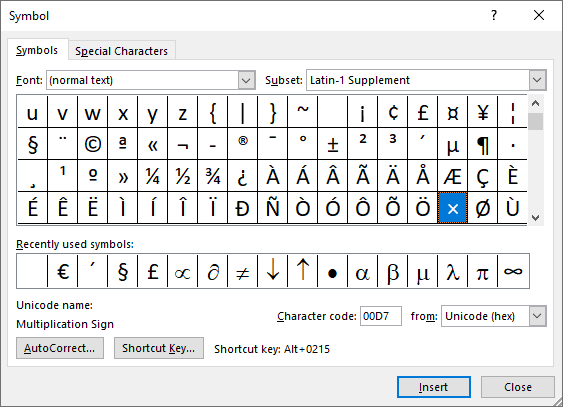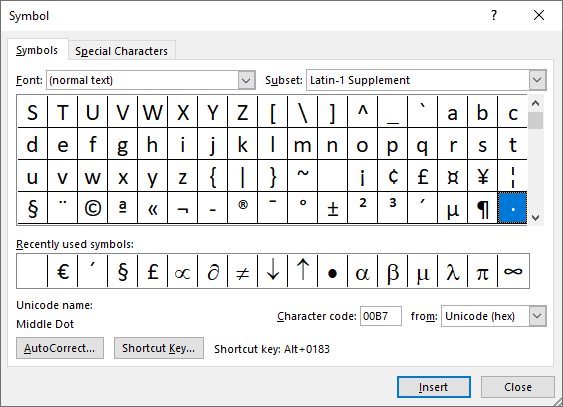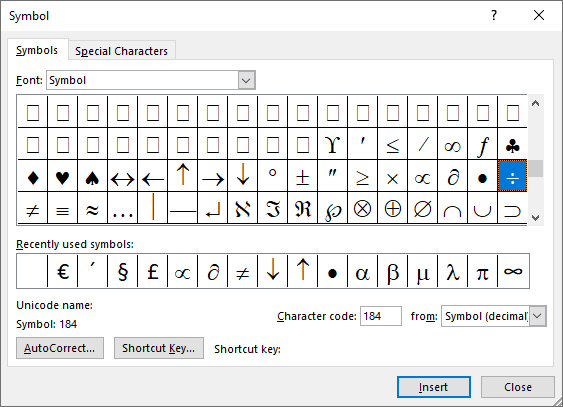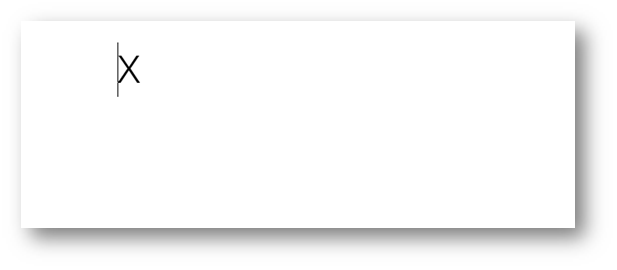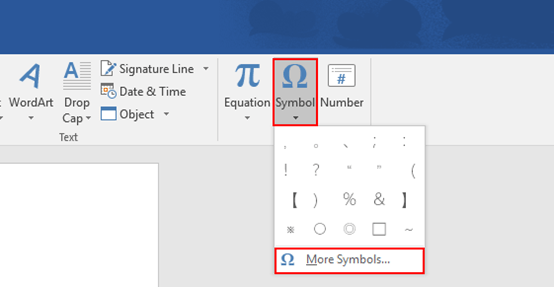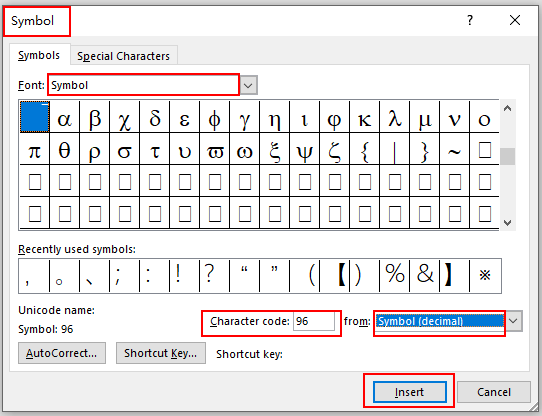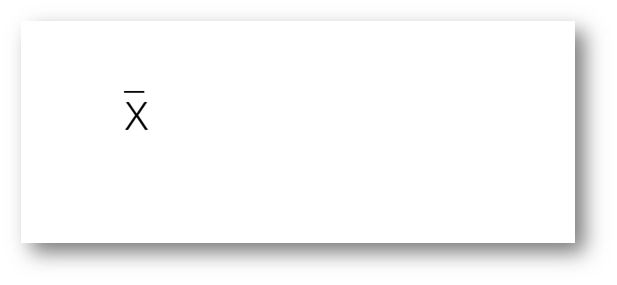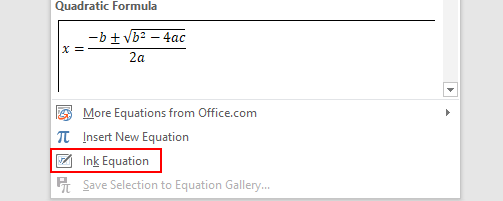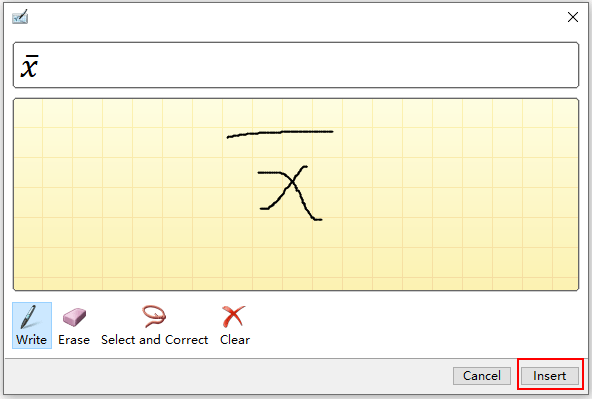Set is a collection of different elements. It could be numbers, alphabets, etc. Various symbols are used to denote them (like ℝ denote set of Real Numbers) and their relationship and operation (subset, union, etc).
These set symbols helps to represent mathematical ideas in a concise way and saves space and time. In this blog we have listed all the commonly used Set symbols together and how to get them in Ms Word along with their keyboard shortcuts
List of set symbols along with their meaning and how to get them in Ms Word
Three methods to get symbols in Ms Word
Insert Symbol Method: Go to Insert > Symbols and select More Symbols. In the symbol window, click the desired symbol and hit insert. Following table gives the subset dropdown option of each symbol that can help you find a symbol.
Math AutoCorrect: This is the smartest way to get any symbol in Ms Word. Simply type the Math AutoCorrect text and hit space to get symbol. It works inside Equation editor. However, you can make it work outside equation editor, with following one time setting.
- Go to File > Options to open Word Options
- In Proofing and select AutoCorrect Options
- In Math Autocorrect tab, check box against “Use Math AutoCorrect rules outside of math regions”
Alt X Method: Type the Alt X code of symbol and press Alt + X immediately after it to get symbol.
Let’s say, P = {1, 2, 3, 4} and Q = {1, 3, 5}
| Symbol | Name & Meaning | Example | Subset of Symbol | Math Autocorrect Shortcut (press space after shortcut to get symbol) | Alt X Code (type this code and press Alt+X) |
|---|---|---|---|---|---|
| ℕ | Natural number: All positive integers from 1 till infinity | ℕ = {1, 2, 3, …} | letterlike symbols | doubleN | 2115 |
| ℤ | Integers: A whole number (not fractional ) that are +ve, -ve or 0 | ℤ = {…, -2, -1,0 ,1 ,2 ,…} | letterlike symbols | doubleZ | 2124 |
| ℚ | Rational Numbers: a number that is of the form p/q where p and q are integers and q is not equal to 0 | 5, 10.45, 3/7 | letterlike symbols | doubleQ | 211A |
| 𝔸 | Algebraic numbers: Number that is the solution to a polynomial with rational coefficients | 1, 3/7, √2 | Extended characters – Plane 1 | doubleA | 1D538 |
| ℝ | Real numbers: A number that includes rational and irrational numbers | 2, π, 2/7 | letterlike symbols | doubleR | 211D |
| 𝕀 | Imaginary numbers: a real number multiplied by an imaginary unit which is defined by its property i2 = −1 | 5i, πi | Extended characters – Plane 1 | doubleI | 1D540 |
| ℂ | Complex number: a number of the form a + bi, where a and b are real numbers | 2+3i, 1.5-1i | letterlike symbols | doubleC | 2102 |
| { } | Set: collection of elements | Q = {1, 3, 5} | – | – | – |
| A ∪ B | Union: in A or B (or both) | P ∪ Q = {1, 2, 3, 4, 5} | Mathematical operators | bigcup | 222A |
| A ∩ B | Intersection: in both A | P ∩ Q = {1, 3} | Mathematical operators | bigcap | 2229 |
| A ⊆ B | Subset: every element of A is in B | {1, 3, 5} ⊆ Q or {2, 4} ⊆ P | Mathematical operators | subseteq | 2286 |
| A ⊂ B | Proper Subset: every element of A is in B, but B has more elements. |
Correct: {1, 3} ⊂ Q Incorrect: {1, 3, 5} ⊂ Q |
Mathematical operators | subset | 2282 |
| A ⊄ B | Not a Subset: A is not a subset of B | {5, 6} ⊄ Q | Mathematical Operators | 2284 | |
| A ⊇ B | Superset: A has same elements as B, or more | {1, 3, 5, 7} ⊇ {1, 3, 7} or {1, 3, 5, 7} ⊇ {1, 3, 5, 7} | Mathematical operators | superseteq | 2287 |
| A ⊃ B | Proper Superset: A has B’s elements and more | Correct: {1, 3, 5, 7} ⊃ {3, 5, 7} Incorrect: {1, 3, 5, 7} ⊃ {1, 3, 5, 7} | Mathematical operators | superset | 2283 |
| A ⊅ B | Not a Superset: A is not a superset of B | {1, 3, 5, 7} ⊅ {1, 9} | 2285 | ||
| Ac | Complement: Elements not in A | Qc = {1, 2, 6, 7} | – | – | – |
| A − B | Difference: In A but not in B | Let X = {1, 2, 3, 4} and Y = {2, 4}, then X – Y = {1, 3} | – | – | – |
| a ∈ A | Element: a is an element of A | 3 ∈ {1, 2, 3, 4} | Mathematical operator | in | 2208 |
| b ∉ C | Not an element: b is not an element of C | 2 ∉ {1, 3, 5} | Mathematical operator | notelement | 2209 |
| Ø | Empty set: { } | {1, 3} ∩ {2, 4} = Ø | Mathematical operator | emptyset | 2205 |
| 𝕌 | Universal set: the set of all elements or members of all related sets | Extended Characters – Plane 1 | doubleU | 1D54C | |
| P(A) | Power set: all subset of A | P({a, b}) = { {}, {a}, {b}, {a, b} } | – | – | – |
| A = B | Equality: both sets have the same members | {2, 5, 8} = {8, 2, 5} | – | – | – |
| A×B | Cartesian Product: (set of ordered pairs from A and B) |
{1, 2} × {a, b} = {(1, a), (1, b), (2, a), (2, b)} |
Latin-1 Supplement | times | 00D7 |
| |A| | Cardinality: number of elements of set A | |{5, 6}| = 2 | – | – | |
| | | Such that | { n | n > 0 } = {1, 2, 3,…} | – | – | – |
| : | Such that | { n : n > 0 } = {1, 2, 3,…} | – | – | – |
| ∀ | For all | ∀ x >1, x2 > x (for all x greater than 1, x square is greater than x) |
Mathematical operators | forall | 2200 |
| ∃ | There exists | ∃ x | x2 < x (there exists x such that x squared is less than x) |
Mathematical operators | exists | 2203 |
| ∄ | There does not exist | ∄ x | x +1 < x | Mathematical operator | 2204 | |
| ∴ | Therefore | a=b ∴ b=a | Mathematical operators | therefore | 2234 |
HTTA is reader supported. When you buy through links on our site, we may earn an affiliate commission at no extra cost to you. Learn more.
In today’s article, you’ll learn how to use some keyboard shortcuts and other methods to type or insert any Fraction Symbol on your PC using Microsoft Word and other places.
Note: There are different fraction symbols. Some of them can be typed as symbols whilst others can be made up using the insert equation function.
Without further ado, let’s get into it.
Method 1: Using the Insert Equation Method (Works in MS Office)
The equation tool is particularly useful for typing math operators and fractions. It provides you with different types of fraction templates that make it so much easy when you need to insert any type of fraction.
Below are the steps to help you get any fraction in Microsoft Word.
- Click to place your cursor where you need to insert the fraction symbol.
- Press [Alt] + [=] to insert the Equation tool.
- Alternatively, go to the Insert tab, in the Symbols group, click the drop-down button by the Equation function to reveal the equation gallery. Then click on Insert New Equation at the bottom. Or just press the Alt plus the Equal key simultaneously.

As seen in the above picture, you should see the Equation tool with label ‘Type equation here.’.
- You should also notice a new tab (Design tab) when you click on the Equation tool. Click on this tab.

- In the Structures group, select the Fraction button.
You should see a lot of fraction templates. Select one that resonate with you.

- Fill the template with the fraction’s numerator and denominator.
To do that, just click on the numerator box above the line and type the number you wish to give to it. Do the same for the denominator box.

As shown in the above steps, using the equation method is one of the easiest ways one can use to type or insert any fraction in Microsoft Word.
Method 2: Using the Forward Slash Symbol as the Dividing line
Depending on the type of document you are working on, sometimes all you need to type fractions is to use the forward slash symbol as the division line that separates the numerator and the denominator. 2/3 for example.
For instance, to type any fraction symbol with the forward slash, first type the numerator (say 1), then press the forward slash key (/), now type the denominator (say 2). Now you should have ½.
If this is not the idea you are looking for, keep reading below to explore more ways you can type or insert fractions in Word or any word editing software like Google Docs.
Method 3: Using the Fraction Symbol Alt Code (Windows Only)
Below are some available fraction symbol Alt codes that you can use on your keyboard.
| Description | Symbol | Alt Code |
| fraction one quarter | ¼ | Alt + 0188 |
| fraction one half | ½ | Alt + 0189 |
| fraction three quarters | ¾ | Alt + 0190 |
| fraction one third | ⅓ | Alt + 8531 |
| fraction two third | ⅔ | Alt + 8532 |
| fraction one fifth | ⅕ | Alt + 8533 |
| fraction two fifths | ⅖ | Alt + 8534 |
| fraction three fifths | ⅗ | Alt + 8535 |
| fraction four fifths | ⅘ | Alt + 8536 |
| fraction one sixth | ⅙ | Alt + 8537 |
| fraction five sixths | ⅚ | Alt + 8538 |
| fraction one eight | ⅛ | Alt + 8539 |
| fraction three eights | ⅜ | Alt + 8540 |
| fraction five eights | ⅝ | Alt + 8541 |
| fraction seven eights | ⅞ | Alt + 8542 |
| Fraction numerator one | ⅟ | Alt + 8543 |
| fraction one seventh | ⅐ | Alt + 8528 |
| fraction one ninth | ⅑ | Alt + 8529 |
| fraction one tenth | ⅒ | Alt + 8530 |
| fraction zero thirds | ↉ | Alt + 8585 |
Even though these Symbols have no dedicated keys on the keyboard, you can still type them on the keyboard with the Alt code method. To do this, press and hold the Alt key whilst pressing the Fraction Alt code stated above, using the numeric keypad.
Use the fraction Alt Code table above as reference to type any fraction symbol on your keyboard with the alt codes.
This method works on Windows only. And your keyboard must also have a numeric keypad.
Below is a break-down of the steps you can take to type To the Power of Sign on your Windows PC:
- Place your insertion pointer where you need Fraction Symbol text.
- Press and hold one of the Alt keys on your keyboard.
- Whilst holding on to the Alt key, press Fraction Symbol’s alt code (0189 for ½). You must use the numeric keypad to type the alt code. If you are using a laptop without the numeric keypad, this method may not work for you. On some laptops, there’s a hidden numeric keypad which you can enable by pressing Fn+NmLk on the keyboard.
- Release the Alt key after typing the Alt code to insert the Symbol into your document.
This is how you may type this symbol in Word using the Alt Code method.
Method 4: Using Fraction Symbol Shortcut (Mac and Windows)
Below table shows all the shortcuts for the various fraction symbols that you can use to type any fraction on Windows or Mac.
| Description | Fraction Symbol | Windows Shortcut | Mac Shortcut | Word Shortcut |
| fraction one quarter | ¼ | Alt + 0188 | Option + 00BC | 00BC + Alt + X |
| fraction one half | ½ | Alt + 0189 | Option + 00BD | 00BD + Alt + X |
| fraction three quarters | ¾ | Alt + 0190 | Option + 00BE | 00BE + Alt + X |
| fraction one third | ⅓ | Alt + 8531 | Option + 2153 | 2153 + Alt + X |
| fraction two third | ⅔ | Alt + 8532 | Option + 2154 | 2154 + Alt + X |
| fraction one fifth | ⅕ | Alt + 8533 | Option + 2155 | 2155 + Alt + X |
| fraction two fifths | ⅖ | Alt + 8534 | Option + 2156 | 2156 + Alt + X |
| fraction three fifths | ⅗ | Alt + 8535 | Option + 2157 | 2157 + Alt + X |
| fraction four fifths | ⅘ | Alt + 8536 | Option + 2158 | 2158 + Alt + X |
| fraction one sixth | ⅙ | Alt + 8537 | Option + 2159 | 2159 + Alt + X |
| fraction five sixths | ⅚ | Alt + 8538 | Option + 215A | 215A + Alt + X |
| fraction one eight | ⅛ | Alt + 8539 | Option + 215B | 215B + Alt + X |
| fraction three eights | ⅜ | Alt + 8540 | Option + 215C | 215C + Alt + X |
| fraction five eights | ⅝ | Alt + 8541 | Option + 215D | 215D + Alt + X |
| fraction seven eights | ⅞ | Alt + 8542 | Option + 215E | 215E + Alt + X |
| Fraction numerator one | ⅟ | Alt + 8543 | Option + 215F | 215F + Alt + X |
| fraction one seventh | ⅐ | Alt + 8528 | Option + 2150 | 2150 + Alt + X |
| fraction one ninth | ⅑ | Alt + 8529 | Option + 2151 | 2151 + Alt + X |
| fraction one tenth | ⅒ | Alt + 8530 | Option + 2152 | 2152 + Alt + X |
| fraction zero thirds | ↉ | Alt + 8585 | Option + 2189 | 2189 + Alt + X |
You must use the numeric keypad to type the alt code. Also, ensure that your Num Lock key is turned on.
These are the shortcuts you may use to type any fraction sign in Word on your keyboard.
Method 5: Copy and Paste Fraction Symbol
Another easy way to get Fraction Symbols on any PC is to use my favorite method: copy and paste.
All you have to do is to copy the symbol from somewhere like a web page, or the character map for windows users, and head over to where you need the symbol (say in Word or Excel), then hit Ctrl+V to paste.
Below is the symbol for you to copy and paste into your Word document. Just select it and press Ctrl+C to copy, switch over to Microsoft Word, place your insertion pointer at the desired location, and press Ctrl+V to paste.
½ ¼ ¾ ⅓ ⅔ ⅛ ⅜ ⅝ ⅞
Alternatively, just use the copy button at the beginning of this post.
For windows users, obey the following instructions to copy and paste any Fraction Symbol using the character map dialog box.
- Click on the Start button and search for Character Map. The Character Map app will appear in the search results, click to open.

- The Character Map dialog will appear. Click to check the Advanced view check-box to expand the dialog box for more advanced options.

- On the advanced view, where it is labeled Group by:, change All to Unicode Subrange.
- The Group By dialog box will show up. Select Number Formats from the list. All the available fraction symbols will appear on the character map.

- Double click to select the fraction symbol you wish to insert into your document.
- After you select the symbol by double-clicking it, it should appear in the Character to copy: field, then click on the Copy button to copy the symbol.
- Switch to your Microsoft Word or Excel document, place the insertion pointer at the desired location, and press Ctrl+V to paste.
This is how you may use the Character Map dialog to copy and paste any symbol on Windows PC.
Method 6: Using insert Symbol dialog box
The insert symbol dialog box is a library of symbols from where you can insert any symbol into your Word document with just a couple of mouse clicks.
Obey the following steps to insert this symbol (½) in Word or Excel using the insert symbol dialog box.
- Open your Word document.
- Click to place the insertion pointer where you wish to insert the symbol.
- Go to the Insert tab.

- In the Symbols category, click on the Symbol drop-down and select the More Symbols button.

The Symbol dialog box will appear.
- To easily locate Fraction Symbols, click on the subset drop-down list and choose Number Forms from the list. It’ll filter out all the fraction symbols for you.
- Click on the symbol you wish to insert.
- Now click on the Insert button to insert the symbol into your document.

- Close the dialog.
The symbol will then be inserted exactly where you placed the insertion pointer.
These are the steps you may use to insert this Symbol in Word.
Conclusion
As you can see, there are several different methods you can use to type To the Power of Sign in Microsoft Word.
Using the shortcuts for both Windows and Mac makes the fastest option for this task. Shortcuts are always fast.
Thank you very much for reading this blog.
If you have anything thing to say or questions to ask concerning Fraction Symbol, please drop it in the comments.
The multiplication sign × (also known as the times sign or the dimension sign) is the mathematical sign for the multiplication operation. There are several popular representations for the multiplication operation: a cross (×), a dot (⋅), or an asterisk (∗).
See also
how to insert X mark in Word.
The division sign ÷ is a mathematical symbol in the form of a colon (∶), obelus (÷), or slash or solidus (/) used to denote the division operator. In most standards, the slash (/) is used as a division sign for linear representation or a fraction bar for structured representation. Symbols ÷ and ∶ can define a data range.
We strongly recommend using
the Equation tools to insert any type of equation or mathematical, financial, or even logical formulas and expressions.
A lowercase Latin letter X often substitutes the multiplication sign, but this is a mistake that you need to avoid.
To create a perfect document, use one of the following ways to insert a multiplication symbol, or a division sign:
The standard way: using the Symbol dialog box:
To open the Symbol dialog box, do the following:
1. On the Insert tab, in the Symbols group, select the Symbol button, and then click More Symbols…:

2. On the Symbol dialog box:
- Select the symbol you want to insert:
For example:
- The multiplication sign:
- The dot symbol:
- Choose the Symbol font from the Font list, and then select the division symbol:
- The multiplication sign:
- Click the Insert button to insert the symbol to the current cursor position.
- Click the Cancel button to close the Symbol dialog box.
Using a shortcut key:
In Microsoft Word, you can use Unicode to insert any of the used symbols:
| Shortcut key | Symbol | |
|---|---|---|
| Multiplication sign | Type 00d7 or 00D7 (does not matter, uppercase or lowercase) and immediately press Alt+X | × |
| Multiplication X | Type 2715 and immediately press Alt+X | ✕ |
| Vector or cross product symbol | Type 2a2f or 2A2F and immediately press Alt+X | ⨯ |
| Middle dot | Type 00b7 or 00D7 and immediately press Alt+X | · |
| Dot symbol | Type 22c5 or 22C5 and immediately press Alt+X | ⋅ |
| Division sign | Type 00f7 or 00F7 and immediately press Alt+X | ÷ |
The quicker way: using AutoCorrect for Math:
When you work with many documents and often need to paste a single special symbol, you do not need to insert an equation each time. Microsoft Word offers a helpful feature named AutoCorrect. The AutoCorrect options in Microsoft Word propose two different ways to quickly add any special character, or even
large pieces of text:
- Using
the
Replace text as you type function of the AutoCorrect options. - Using the Math AutoCorrect options:
Using this method, you can benefit from the Math AutoCorrect options without inserting an equation. To turn on or turn off the AutoCorrect of the Math symbols, do the following:
1. On the File tab, click Options:

2. In the Word Options dialog box, on the
Proofing tab, click the AutoCorrect Options… button:
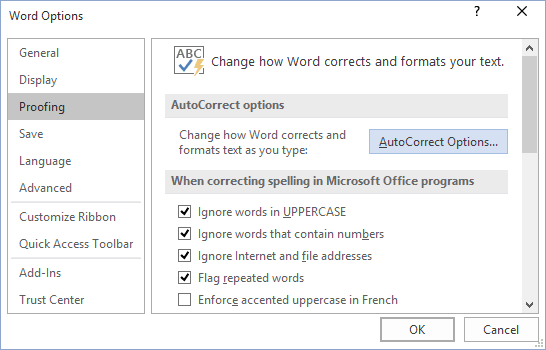
3. In the AutoCorrect dialog box, on the Math AutoCorrect tab, select the Use Math AutoCorrect rules outside of the math regions option:
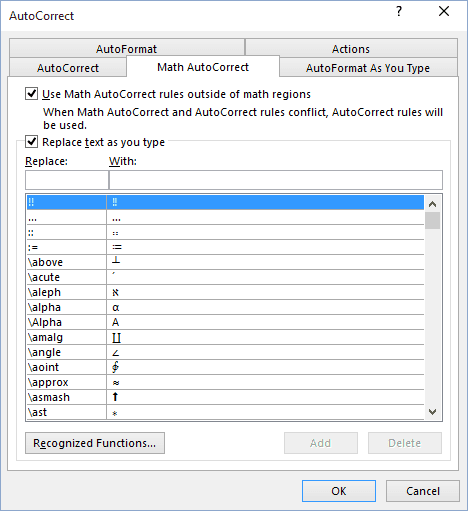
After clicking OK, you can use any of the listed Names of symbols, and Microsoft Word will replace them with the appropriate symbols:
,
,
.
Note: If you do not need the last replacement, click Ctrl+Z to cancel it.
Microsoft Word symbols cannot be easily typed in using the keyboard.
However,
the need to include these characters in documents is increasingly common these
days.
Even when writing in English, foreign names of places and people may require some of these special characters.
Scientific writings also include mathematical symbols and Greek letters.
Text may also include characters like the degree symbol and copyright symbol.
There
are character codes you can use to enter a symbol in Word. However, most people
don’t have the time to memorize these character codes.
So, in this guide today, you’ll learn how to insert any symbol in Word either using the mouse pointer or a keyboard shortcut.
NOTE: There are several methods you can use to type symbols in Word. For me, the method I use to type symbols depends on how many and how frequently I need to type them. Keep reading to choose the best method for you
Without
further ado, below are the ways to type symbols in word
1st Method: Using Insert Symbols
This
method involves using the symbols dialog box located in the symbols area at the
right border of the insert tab.
Below are steps to insert symbols in MS Word using Insert Symbols.
NOTE: in the steps below, I’ll illustrate how to insert symbols in MS Word by inserting the greater than or equal to symbol. You can use the same steps to insert any symbol of your choice.

- STEP 1: Click to position the insertion point at where you want to insert the symbol. In this example, we will place the symbol between X and 10 as you can see in the above picture.
- STEP 2: Go to the Insert tab, in the Symbols group and click Symbol, then More Symbols.

NOTE: If the symbol you want to insert is found in the symbols gallery as shown in the picture above, click it to insert it into your document. Any symbol you use will move to the first position in the gallery. Thus, the symbol gallery box gives you access to the 20 most recently used symbols. However, if you can’t find the symbol you are looking for in the symbol gallery, click on More Symbols to display all the symbols.
- STEP 3: Select your desired font from the Font drop down. You can leave it as default (Normal text). You don’t have to explore every font in the list. However, it is worth looking at Wingdings or Symbol if you want a fancy symbol.

- Step 4: Scroll down or up until you find the required symbol, then
click to select it. You can also click the desired symbol in the Recently used
symbols. - Step 5: Click Insert to insert the selected symbol then click
to close the dialog. Alternatively, double-click on the desired symbol to
insert it into your document, then close the dialog.
As soon as you click insert or double-click the symbol, Word will insert it into your document.
2nd
Method: Using the keyboard to insert symbols in Word.
Not all the symbols in Word can be found on the keyboard.
However, all the symbols can be typed using the keyboard.
Typing symbols that are not found on the keyboard can be very tedious. In fact, it is not even necessary in Word because using the first method above is much easier and simple to compare with.
However, it is still useful to know as it becomes handy to obtain certain characters or symbols in software that has no access to Insert Symbol like in Microsoft Word.
Let’s use the following exercise for example:
- Turn on your Num Lock.
- Whilst holding down the [Alt] key, type [065]
on the numeric keypad (on the right). - Then release the [Alt] key. The letter A should
appear. - To type the letter B, repeat steps 2 and 3. But this
time type [Alt 066] on the numeric keypad. - [Alt 067] should give you C, and [Alt 068] should give
you D, and so on.
This
exercise isn’t really necessary because one can easily type in any letter
directly with the keyboard.
However, not all characters and symbols are on the keyboard. Hence let’s try out the following:
- Hold down the [Alt] and type [0176] for a degree sign (°)
- Type [Alt 0189] and [Alt 0190] for fractions (½ and ¾)
- Also try [Alt 0181] for µ
But
how do you remember the number for each symbol?
It’s
almost impossible to remember. It’s not even necessary.
Instead, you should make a note of the symbols or characters you use very often.
In the next section, you’ll learn how to get the shortcut to any symbol into your Word document.
How to find the keyboard shortcut for symbols in word
You
can use the Symbol dialog box to find the character code (or keyboard shortcut)
for any symbol or character.
This way you can insert symbols by typing them on your keyboard instead of using the Symbol dialog box.
Here’s how to learn the keyboard shortcut code for a particular symbol or character in Word:
- Open the Symbols dialog box.
To
display the Symbols dialog box, go to the Insert tab, in the
Symbols group and click Symbol, then More Symbols.
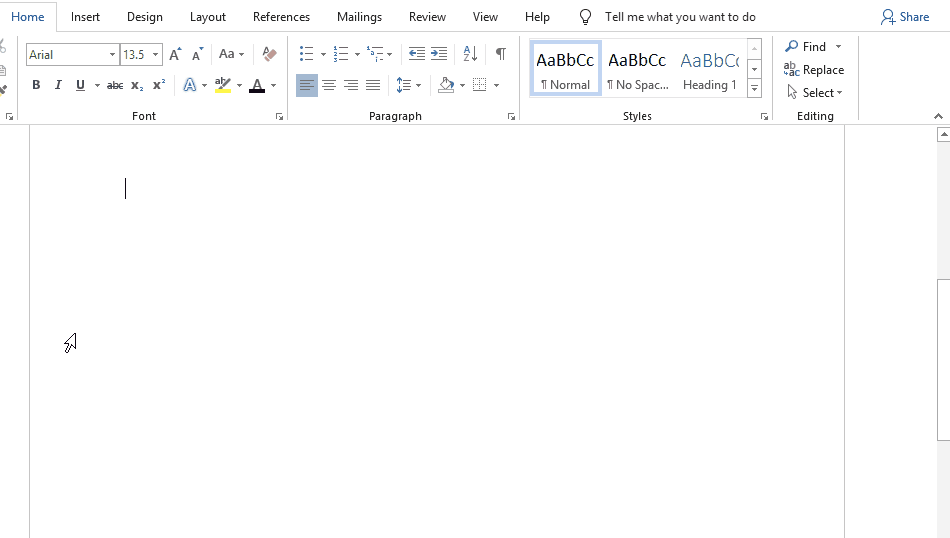
- Select the symbol you want to take note of, then look near
the bottom of the dialog for the symbol name as well as its code. - To insert any symbol using its character code, press down the
[Alt] key, type the code, then release the [Alt] key.
If you are lucky, you’ll see another shortcut key aside from the character code which is much easier to type than the code.
See
screenshot below:

Assigning
shortcut keys to symbols
In
Microsoft word, you are not limited to the default hotkeys.
You can assign any keyboard shortcut key to any command or symbol to fit your needs.
As
mentioned, each and every character or symbol in Microsoft Word has a character
code that you can use on the keyboard.
Aside from these character codes, Word still gives you the space to assign a shortcut key to any symbol.
Below
are the steps to do so:
- Open the Symbols dialog box.
To
display the Symbols dialog, navigate to the Insert tab, in the
Symbols group and click Symbol, then More Symbols. The Symbols
dialog box should display.

- Click to select the symbol to which you want to assign a shortcut.
- At the bottom area of the dialog, click Shortcut Key… The Customize Keyboard dialog box appears.

- Under Specify keyboard sequence, in the Press new shortcut key field, type the keyboard shortcut you want to assign for the symbol.
If the shortcut key you assign is already assigned for a command, Word will tell you that hey dude, the shortcut key you are assigning to this symbol is already taken by another command. If you ignore and continue to assign, Word will not stop you. However, this shortcut will not work again for the command it was previously assigned to. It will now work for this symbol.

- Click Assign to assign the shortcut.
NOTE: There is another box labeled Current keys. These are the current hotkeys assigned to the selected symbol. You can take note of these hotkeys without assigning another one for the same symbol.
Typing
any symbol in Word doesn’t have to be difficult as you can see.
If you don’t understand anything explained here, let me know in the comments section below for more clarification.
Thank you very much for reading this article.
Even though the keyboard is designed with many functions, there are always some symbols that are not on it. Fortunately, Microsoft Word allows us to choose from a variety of options including copyright symbol, trademark symbol and celsius symbol, or even mathematical symbols.
When precessing analysis statistics in Word, you might need to insert a mean symbol, which is`x . It is called an x-bar sometimes, and also one of the most important math symbols which can never be ignored. Here are 2 tips to insert a mean symbol in MS Word as well as in Excel for your reference:
1. Position the cursor before X.
2. Go to Insert tab and click Symbol button, choose More Symbols in the drop-down box.
3. The Symbol dialog box will display, select Symbol in the box of Font. Enter 96 in the box of Character code and choose Symbol (decimal) in the box of from.
4. Simply hit Insert, and you get a mean symbol for X as below.
Tip 2: Manual Input a Mean Symbol
1. Go to Insert tab and click Equation button, choose More Symbols in the drop-down box.
2. Select Ink Equation in the drop-down list.
3. The handwriting board will display, simply drag the mouse to insert a mean symbol. Note: If input error occurs, click the Erase button and select the error part to clear it; if identification error occurs, click Select and Correct button, then select the character which need to be modified, and pick the correct one in the pop-up list to replace it. If you want to reenter a mean symbol, click Clear button then everything in the handwriting board will be deleted.
4. Simply hit Insert, and you get a mean symbol for X as below.
Note: you could also insert a complex math equation in a Word document by the same method.
In addition to Word, these 2 methods of inserting mean symbol can also apply to Microsoft Excel, and the steps are all the same. Have a try if needed!
Copyright Statement: Regarding all of the posts by this website, any copy or use shall get the written permission or authorization from Myofficetricks.


